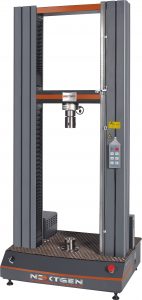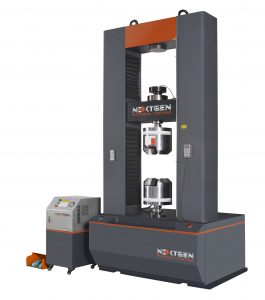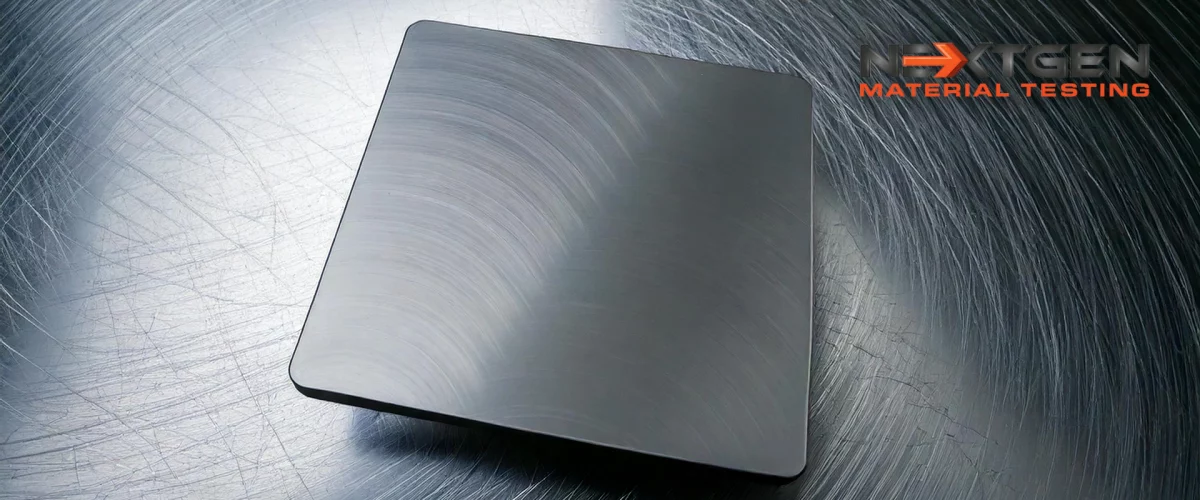While the market offers a large selection of Universal Testing Machines (UTMs), many of them are not suitable for testing composite materials. Composites, due to their layered structure and varying physical properties, require precise testing equipment. Typically, UTMs with a capacity between 50 and 200 kN are ideal for testing composites. This is because composite materials combine high strength with lightweight, meaning the testing machine must provide enough force to measure durability and performance without damaging the material’s integrity.
In this blog, we will discuss two of our best UTMs specifically designed for materials like composites. These instruments are particularly valuable for professionals working with composite materials, especially in industries such as aerospace, automotive, construction, and renewable energy. Whether you are focused on verifying the structural integrity of aircraft components, testing advanced materials for automotive applications, or evaluating the durability of wind turbine blades, these UTMs provide the precision and reliability needed to meet industry standards and performance expectations.
Why Accurate UTMs Are Necessary for Testing Composite Materials
Testing composite materials requires specialized UTMs due to the complex nature of these materials. Composites, such as carbon fiber-reinforced polymers or metal matrix composites, have unique properties—lightweight yet high strength—which vary across layers and directions. Thus, the most accurate testing is required to confirm that these materials are able to withstand the loads and stresses for which they have been designed.
-
Precision and Consistency: Unlike metals or plastics, composites often have anisotropic properties, meaning their strength can differ based on direction. A UTM with high accuracy makes certain that the applied forces are correctly measured and that results, such as tensile strength and elongation, are reliable.
-
Adaptive Testing: Composites are used in numerous applications, each requiring different types of tests, such as tension, compression, and flexure. Specialized UTMs offer the flexibility to handle these different test types while providing the precision necessary for quality control and material certification.
-
High-Force Applications: For structural composites, higher force capacities (up to 600kN or more) may be required to accurately simulate real-world conditions. UTMs designed for composite testing must offer both high-capacity and sensitive measurement capabilities to avoid damaging the material during testing.
NG-EML Class C – Dual-Column Bench-Top and Floor-Standing UTM (20kN-50kN)
 The NG-EML Class C – Dual-Column Bench-Top and Floor-Standing Universal Testing Machine (UTM) is engineered to meet the diverse needs of routine testing, making it an excellent choice for quality control and production testing in industries dealing with composite materials, metals, plastics, and more. This machine is designed for tension, compression, flexure, and other testing applications, with a load range from 20kN to 50kN, meeting both small and medium-scale testing requirements.
The NG-EML Class C – Dual-Column Bench-Top and Floor-Standing Universal Testing Machine (UTM) is engineered to meet the diverse needs of routine testing, making it an excellent choice for quality control and production testing in industries dealing with composite materials, metals, plastics, and more. This machine is designed for tension, compression, flexure, and other testing applications, with a load range from 20kN to 50kN, meeting both small and medium-scale testing requirements.
Our system’s dual-column load frame provides excellent stability and durability so that the machine can handle high-precision tests under different conditions. Equipped with a high-speed, low-vibration electromechanical drive and precision pre-loaded ball screws, the NG-EML Class C offers smooth operation and superior alignment during testing, which is paramount for producing reliable and accurate results.
One of the key features of this UTM is its comprehensive software, which includes a pre-programmed library of industry standards such as ASTM, ISO, DIN, EN, and BS. This means that operators can easily select the appropriate testing protocol for their material, ensuring compliance with international testing standards without needing to manually configure the system.
Additionally, this machine offers high-resolution digital controls and automatic limit checking to prevent overload, over-temperature, and other operational risks, making it a safe and user-friendly option for testing labs. The USB 2.0 communication system allows for smooth data exchange between the machine and its control software, resulting in efficient operation and real-time monitoring during the testing process.
This UTM is particularly well-suited to testing a wide spectrum of materials, including composites, metals, reinforced plastics, elastomers, textiles, and wood products. Its flexible design, with options for either a single or dual testing zone, allows for a large variety of specimen sizes and testing configurations, catering to the needs of different industries. The machine also comes with a selection of grips, fixtures, and extensometers to further customize the system to specific testing requirements.
For industries where material integrity and performance are critical, the NG-EML Class C offers a reliable, robust, and precise solution for testing. Its load capacity of up to 50kN, coupled with its durable construction and user-friendly design, makes this product an ideal choice for manufacturers, research labs, and testing facilities focused on maintaining high standards of material performance.
NG-EML Class D – Floor-Standing Universal Testing Machine (50kN-600kN)
 The NG-EML Class D – Floor-Standing Universal Testing Machine (UTM) is built to meet the demands of testing materials with higher force capacities, ranging from 50kN to 600kN. While similar in precision and reliability to the NG-EML Class C, the Class D model is primarily designed for larger specimens and higher force applications.
The NG-EML Class D – Floor-Standing Universal Testing Machine (UTM) is built to meet the demands of testing materials with higher force capacities, ranging from 50kN to 600kN. While similar in precision and reliability to the NG-EML Class C, the Class D model is primarily designed for larger specimens and higher force applications.
With its dual-column floor-standing configuration, the NG-EML Class D is engineered to provide maximum stability during tension, compression, and flexure tests. This system is particularly suited to testing metals, large fasteners, building components, composites, and wood products, allowing even the most robust materials can be tested to their limits without compromising accuracy.
A key differentiator of the NG-EML Class D is its expanded force capacity, which is capable of accommodating an extensive range of material strengths, from 50kN for smaller components to 600kN for heavy-duty materials. This versatility allows for comprehensive testing across a broad spectrum of applications, from everyday quality control tasks to more demanding structural integrity assessments.
In terms of technology, this tool shares many high-precision features with Class C, including a high-speed, low-vibration electromechanical drive and pre-loaded ball screws for superior alignment. However, the Class D model stands out in its ability to handle significantly larger loads, with force ranges as high as 600kN. This makes it the go-to choice for companies needing to test large-scale or high-strength materials, such as reinforced steel or concrete components.
The machine’s software is just as user-friendly and versatile, featuring an extensive pre-programmed library of standards like ASTM, ISO, DIN, EN, and BS. Whether performing routine tests or more specialized applications, operators can rely on pre-configured settings to achieve accurate and standardized results without manual adjustments.
Despite its increased capacity, the NG-EML Class D remains highly reliable and adaptable to a variety of testing environments, from industrial production floors to specialized research labs. The machine is available with a range of grips, fixtures, extensometers, and environmental systems, allowing users to customize the system based on specific testing needs.
In comparison to the Class C model, which focuses on mid-range capacities, the NG-EML Class D offers far greater force potential and is ideal for testing materials that require higher load capacities. This makes it a preferred option for industries dealing with large-scale materials and heavy-duty testing requirements.
Choose the Right UTM for Your Composite Testing Needs
Both the NG-EML Class C and NG-EML Class D models offer advanced solutions that are designed to meet the demanding requirements of composite material testing. These UTMs are vital tools in a variety of industries because they provide the accuracy, precision, and versatility required to evaluate the mechanical properties of composite materials. Machines such as these are vital for assessing strength, flexibility, and durability, so that composite materials meet performance expectations, particularly in safety-critical industries such as aerospace, automotive, and construction.
The NG-EML Class C is an excellent choice for those needing a more compact, yet precise system for small to medium-scale testing. With its load range of 20kN to 50kN, it can handle the routine tests required for quality control and product development, offering reliable and repeatable results for a broad selection of composite materials. This machine’s high-speed, low-vibration drive and software with pre-programmed standards enable it to be a flexible and user-friendly solution for many testing environments.
On the other hand, the NG-EML Class D model provides a higher force capacity, from 50kN to 600kN, making it ideal for larger, more demanding testing applications. This machine’s dual-column structure offers exceptional stability and precision, even under higher loads, allowing it to test more robust materials, including reinforced steel and large structural components. Its comprehensive software and range of grips, fixtures, and extensometers offer extensive customization, making it highly adaptable to industries requiring detailed and exact testing processes.
At NextGen Material Testing, we understand the critical role UTMs play in maintaining product quality and safety. With years of experience, we are committed to providing the best testing solutions for your specific needs. Whether you need help selecting the right model, or you are looking for tailored solutions for your testing applications, our team is ready to assist you. Feel free to contact us directly or request an online quote, and we will help you choose the perfect universal testing machine to enhance your testing capabilities and guarantee long-term success.
